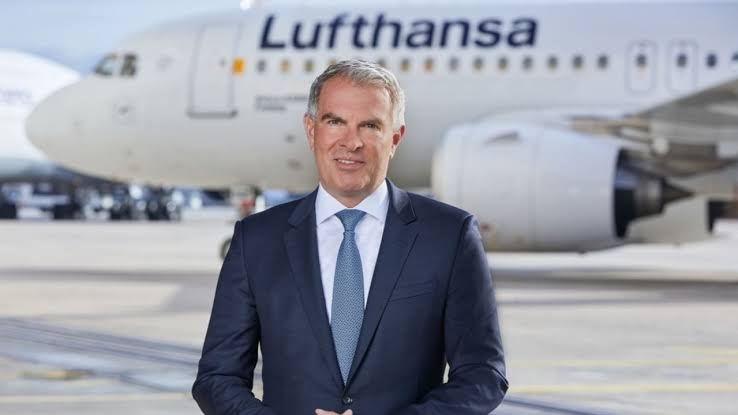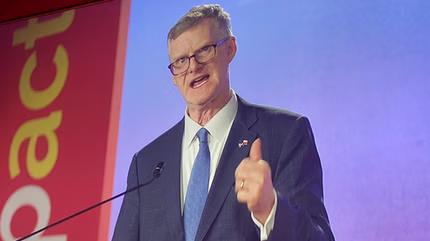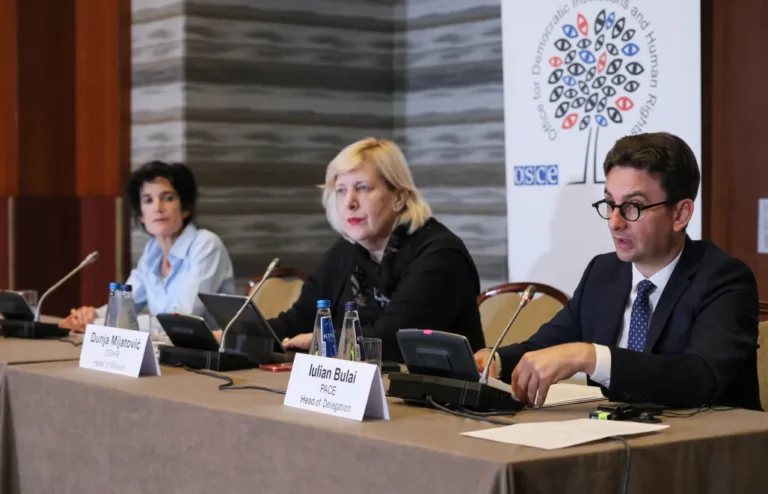Lufthansa CEO Steps Down Amid Shocking Crisis, Shaking Aviation Industry
In a stunning turn of events that has rocked the global aviation sector, Carsten Spohr, the long-standing CEO of Lufthansa Airlines, announced his immediate retirement amid what insiders describe as a “shocking internal crisis” within Germany’s flagship carrier. The announcement, made during an emergency press briefing at the company’s Frankfurt headquarters, has sent shockwaves across the European airline industry, raising questions about the airline’s financial health, leadership stability, and future trajectory.
Spohr, who has led Lufthansa since 2014, was widely credited with steering the airline through some of the most turbulent periods in its history, including the COVID-19 pandemic and the post-pandemic recovery. His sudden departure has not only stunned employees and shareholders but also ignited a wave of speculation about the underlying causes of the crisis that led to his resignation.
A Legacy Cut Short
Carsten Spohr, a former pilot and aerospace engineer, took over the reins of Lufthansa at a time when the industry was undergoing digital transformation and facing fierce competition from low-cost carriers. Under his leadership, Lufthansa Group expanded its global reach, enhanced digitalization, and navigated the crippling effects of the pandemic with state support and strategic restructuring.
Spohr was known for his no-nonsense leadership style, often balancing employee concerns with tough economic decisions. He played a central role in integrating various airline subsidiaries under the Lufthansa Group umbrella, such as Austrian Airlines, Swiss International Air Lines, and Eurowings.
However, despite his successes, recent internal reports suggest a buildup of tension within the board, declining employee morale, and increasing investor dissatisfaction over strategic missteps — particularly in fleet modernization and digital infrastructure.
The Crisis Unfolds
While Lufthansa has yet to disclose full details, multiple sources close to the company have cited a confluence of issues that may have triggered the crisis leading to Spohr’s resignation.
According to internal leaks reported by Handelsblatt, a critical systems outage last month caused massive flight disruptions across Europe, stranding thousands of passengers. The failure was allegedly linked to aging IT infrastructure that had been flagged for urgent upgrades over the past two years. Critics claim that Spohr and his executive team delayed investment in critical technology to preserve short-term financial gains.
In parallel, there have been whispers of a widening rift between the CEO and senior board members regarding the company’s growth strategy. A proposed joint venture with a major Middle Eastern airline, which was rumored to involve significant asset realignment, allegedly created friction within the leadership ranks.
Another contributing factor is said to be the growing unrest among Lufthansa’s workforce. A recent survey revealed that nearly 40% of employees felt “disconnected” from corporate leadership, citing long working hours, stagnant wages, and a lack of transparent communication.
To add fuel to the fire, a whistleblower from within the finance department reportedly raised concerns about inconsistencies in financial disclosures related to recent cost-cutting programs. Although there is no confirmation of any wrongdoing, the speculation alone has been enough to attract the attention of German financial regulators, who have launched a preliminary inquiry.
A Hasty Exit
In a brief and emotionally charged statement, Spohr said:
“Leading Lufthansa has been the greatest honor of my professional life. However, I believe the time has come for new leadership to guide this company through its next chapter. I step down with deep gratitude for our team and a firm belief in Lufthansa’s potential to soar once again.”
He refused to answer questions from the press, and Lufthansa has not announced an immediate successor. For now, CFO Remco Steenbergen has been appointed interim CEO, while the board begins an international search for a permanent replacement.
Market Reaction
Investors responded sharply to the announcement. Shares of Lufthansa fell by 6.7% on the Frankfurt Stock Exchange within hours of the news, reflecting the market’s concern about the company’s internal stability and the uncertainty surrounding its leadership transition.
“This is the worst possible time for a leadership shake-up,” said Markus Seibel, an aviation analyst with DWS Group. “The airline industry is just regaining altitude after years of pandemic-induced turbulence. Lufthansa was expected to lead that resurgence in Europe. This move will raise doubts among investors and passengers alike.”
Industry Implications
The implications of Spohr’s departure ripple far beyond Lufthansa. As the largest airline in Germany and one of Europe’s “Big Three” carriers, any instability within Lufthansa could have knock-on effects across the continent’s aviation landscape.
Other major airlines have expressed cautious concern. A spokesperson for Air France-KLM said, “We respect Mr. Spohr’s decision and wish him well. We look forward to continued cooperation with Lufthansa during this transition period.”
Meanwhile, the International Air Transport Association (IATA) emphasized the importance of strong leadership during uncertain times. “This is a critical juncture for the aviation industry. Leadership changes must not distract from delivering safe, reliable, and sustainable air travel,” IATA said in a statement.
What Comes Next?
The road ahead for Lufthansa is uncertain. The incoming CEO will inherit a company at a crossroads — balancing digital transformation, environmental commitments, and rising customer expectations in a highly competitive global market.
Lufthansa’s board has assured shareholders and the public that operations will continue normally and that a transition plan is already in place. However, questions linger: Will the airline fully recover from the current crisis? Can the next leader restore internal cohesion and public trust?
For now, the aviation world watches closely as Lufthansa, once seen as a model of European excellence, navigates through one of its most turbulent moments in decades.






